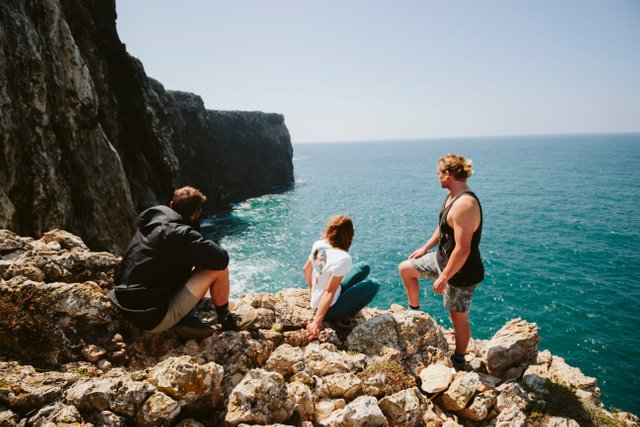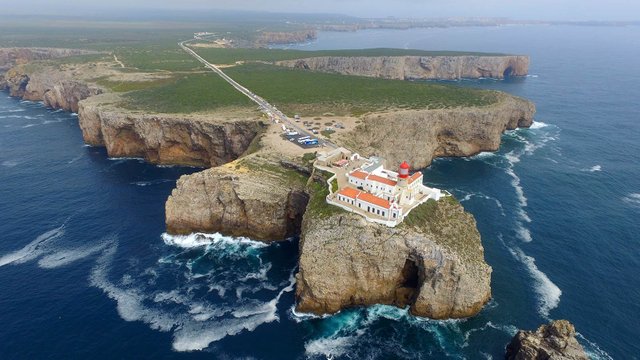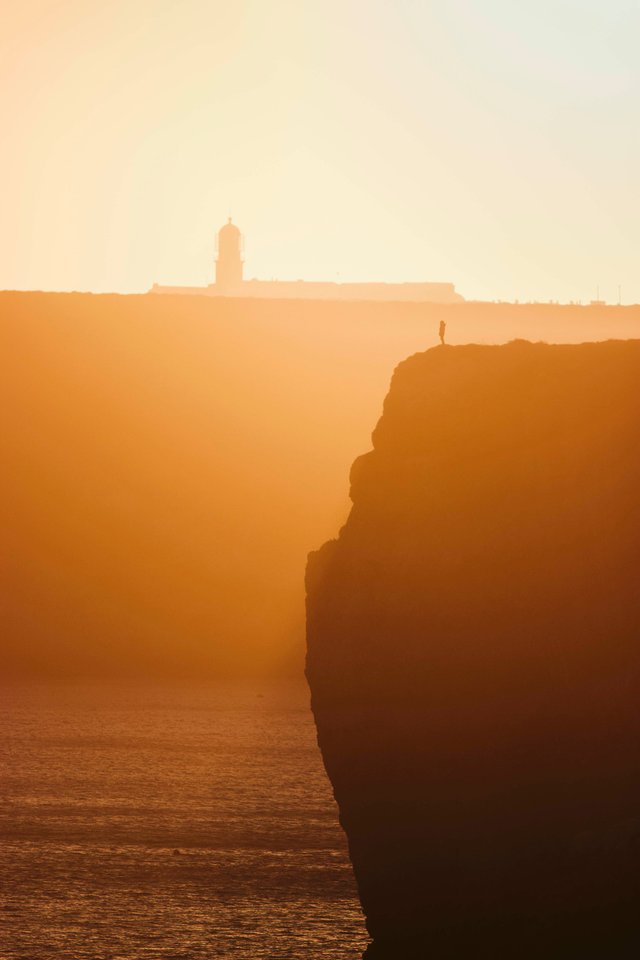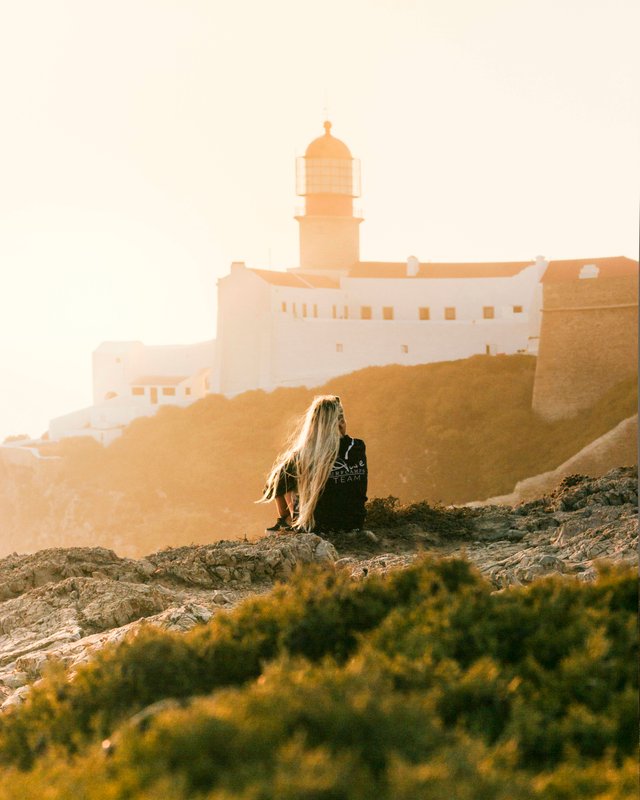Cabo de São Vicente (the Cape of Saint Vincent) is the most southwesterly extremity of Europe and a must see place in Southern Portugal!

This wind blasted and storm pounded headland is just what visitors expect, for what was considered, up until the 14th century, the end of the known world. The jagged cliffs rise 60 meters from the ferocious seas and high above guarding the busy shipping lines is one of Europe’s brightest lighthouses that can be seen 60 miles away.

Henry the Navigator, the father of Portugal’s 17th century Golden Age of Discovery, supposedly spent much of his time based here planning voyages that mapped and explored the unknown region of western Africa. Cabo Sao Vincente is a wild, windswept and remote landscape, and tourists who visit won’t be disappointed.

The lighthouse originates from 1846 and was constructed on the old ruins of a Franciscan monastery. This monastery paid homage to Saint Vicente, whose bones were reputedly found in the cliffs and to whom the headland is named after.

The bones of Saint Vicente were moved from the shire at Cabo Sao Vicente to Lisbon in 1147 as part of populous propaganda activity to bolster the Christian conquest of Portugal. The destructive 1755 earthquake badly damaged the monastery and this was never repaired. The two sacred statues of Saint Vincent and Francis Xavier were moved to the church of Nossa Senhora da Graça in Sagres.
Found me on my next adventure - https://www.instagram.com/leodomingox/
Take care, Leo